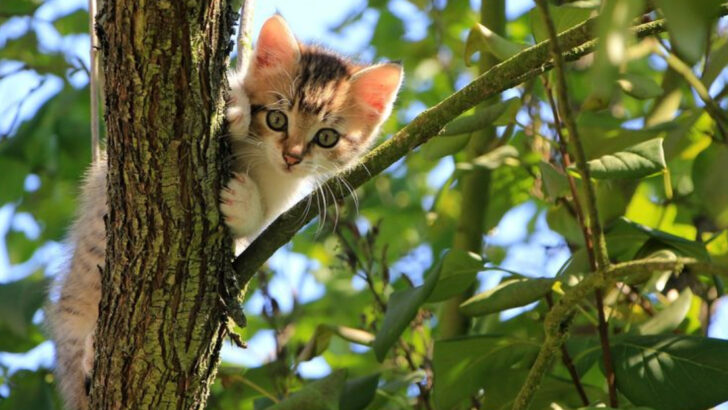Letting your cat outside can feel like handing a toddler the car keys.
Your heart says freedom, but your brain screams danger—and it’s not wrong.
The outside world is full of thrilling smells, fluttering birds, and endless grass to roll in…
But it’s also packed with fast cars, territorial animals, and all kinds of trouble your cat won’t see coming.
Some people swear outdoor cats live their best lives.
Others won’t let theirs near a cracked window.
So what’s the real story?
Before you crack that back door, let’s talk about the risks that keep cat lovers up at night—and whether your feline is ready to face the world beyond the couch.
Traffic Accidents
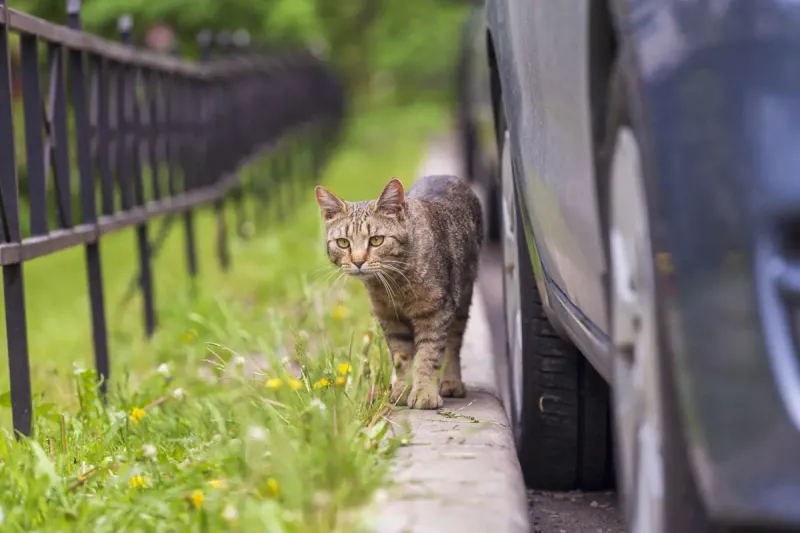
Cars and cats are not a safe mix. With roads bustling with vehicles, the risk of traffic accidents is a real worry for cat owners. Even in residential areas, the danger of a speeding car can be ever-present. A single misjudgment by a cat can lead to tragic consequences.
Cats may not perceive the threat that roads pose. They might see it as just another path to cross. This lack of awareness often leads to accidents.
Some cat owners find themselves torn between allowing freedom and ensuring safety, leading to sleepless nights.
Predator Threats
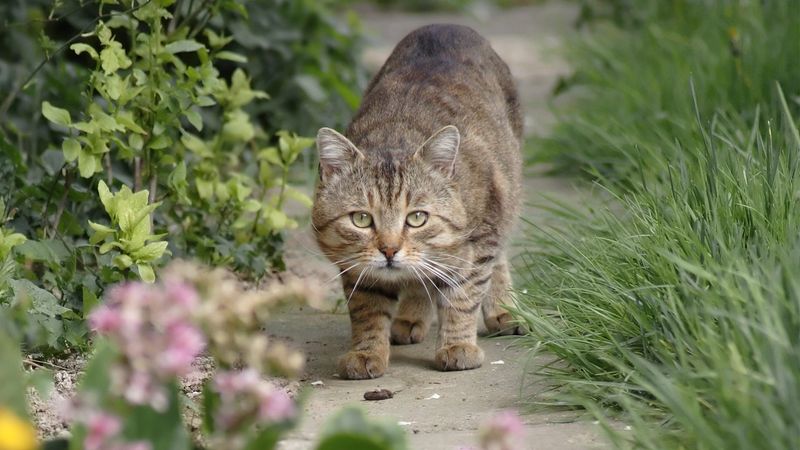
Nature can be both beautiful and dangerous. For cats, the outdoors is filled with potential predator threats like foxes, coyotes, and even large birds of prey. These predators see cats as prey, adding to the risks of outdoor exploration.
This concern is heightened in areas where wildlife is prevalent. Cat owners may feel uneasy, knowing that their feline friend could become a target.
To mitigate this threat, some owners accompany their cats or use protective gear, but the worry often remains a lingering background concern.
Disease Exposure
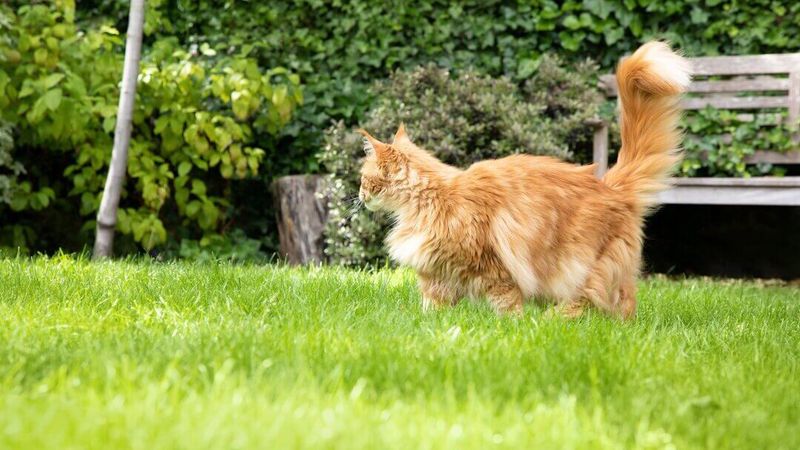
Outdoor environments are teeming with unseen dangers. Cats that roam freely face exposure to various diseases, some of which can be severe. From feline leukemia to parasites like ticks and fleas, the risks are numerous.
Disease transmission can occur through contact with other animals or contaminated surfaces. Many owners worry about the health implications of such freedoms.
Regular vaccinations and vet check-ups can help manage these risks, but the fear of illness can overshadow the perceived benefits of outdoor adventures.
Getting Lost
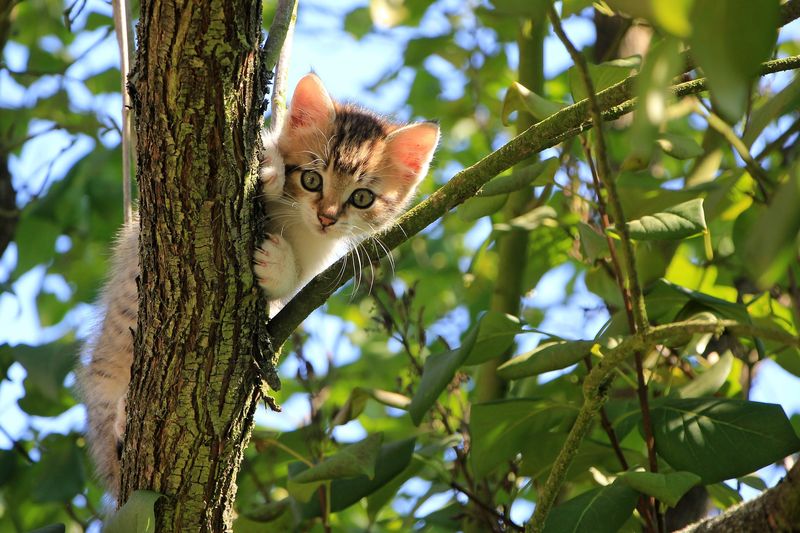
The vastness of the outdoors can be overwhelming for some cats. The fear of them getting lost in an unfamiliar environment is a significant concern. Cats may wander far from home, chasing after a scent or a moving object.
Once disoriented, finding their way back becomes a challenge. This worry is especially poignant in urban areas where landmarks aren’t easily recognized.
To counteract this, some owners equip their pets with GPS collars, but the anxiety of losing a beloved companion is always there.
Fights with Other Animals
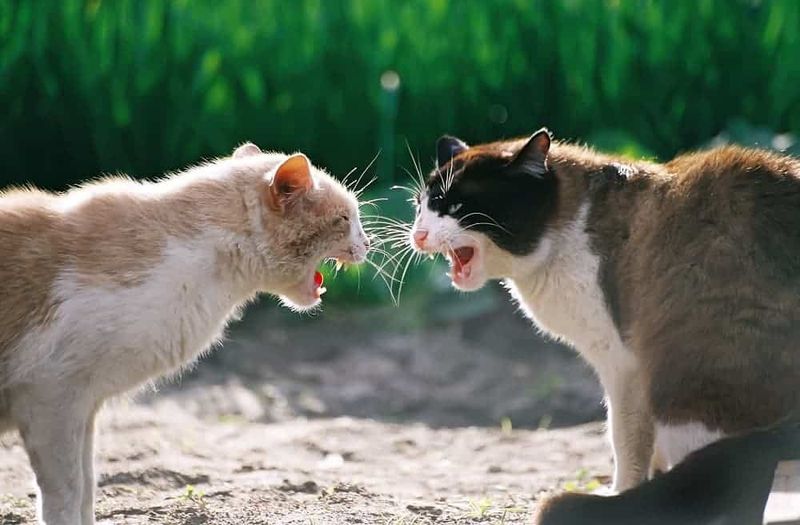
Territorial disputes can quickly escalate into aggressive fights. Cats, being naturally territorial, might engage in conflicts with other animals. These encounters can result in injuries or even infections.
The fear of a beloved pet returning home with scars or wounds is real for many owners. These fights can be unpredictable, happening over food, territory, or even dominance.
While some cats avoid confrontation, others might not back down, leading to continuous worry about their safety during outdoor excursions.
Toxic Plants and Substances

Curiosity can sometimes lead cats into trouble. The outdoors is filled with toxic plants and substances that pose a threat. From lilies and azaleas to antifreeze and pesticides, there are numerous dangers.
Ingesting or even touching certain plants can lead to severe health issues. The unpredictability of a cat’s actions adds to the concern.
Educating oneself about these hazards and monitoring the cat’s outdoor activities can help, but the potential of accidental poisoning is a constant worry for responsible owners.
Harsh Weather Conditions
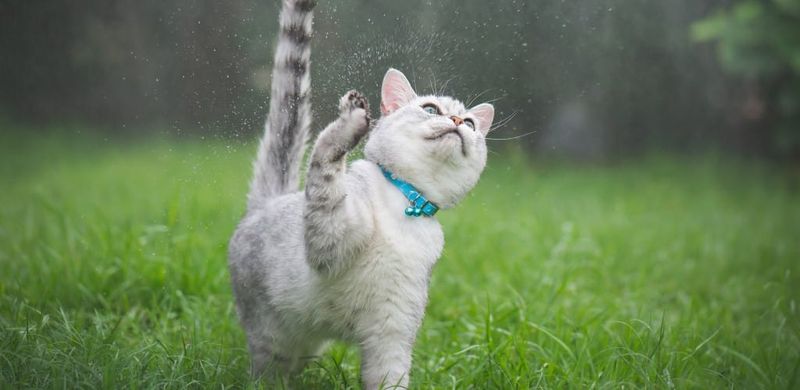
Weather can change in an instant, turning a pleasant day into a harsh environment. Cats exposed to extreme weather conditions, such as heavy rain, snow, or scorching heat, face potential health risks.
Hypothermia, dehydration, or heat stroke are genuine concerns for outdoor cats. Owners often worry about their pets finding adequate shelter or water during such times.
Some take precautions by providing outdoor shelters or restricting outdoor time, but unpredictable weather patterns keep the concern alive.
Theft or Abduction
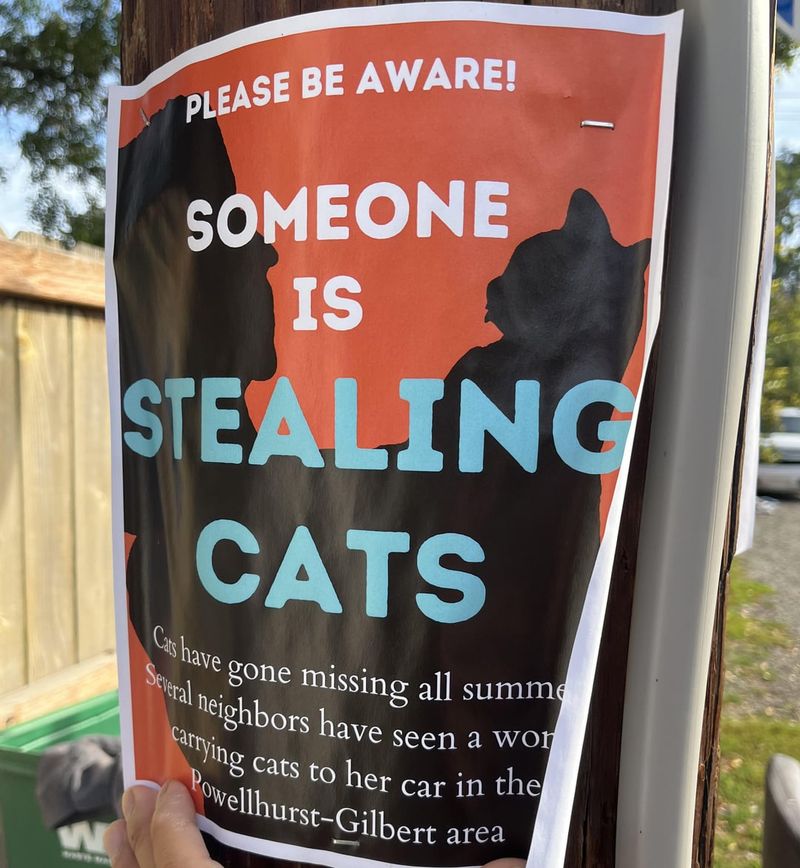
Not everyone has good intentions. The allure of a friendly or purebred cat can tempt thieves or individuals looking to exploit animals. Owners often fear their cats could be stolen or abducted.
This worry is exacerbated in areas with high crime rates or where cat theft has been reported. The bond between a cat and its owner makes this prospect heart-wrenching.
Microchipping and ensuring cats are not too trusting with strangers can help, but the fear of losing them to theft remains a significant concern.
Environmental Pollution
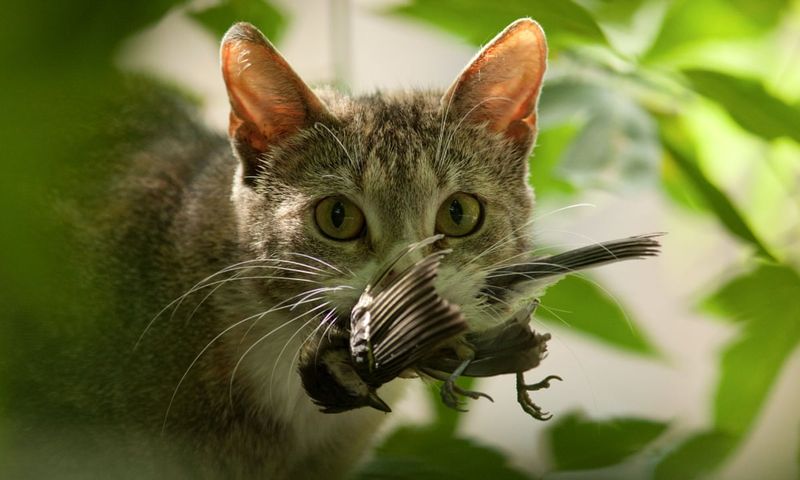
Pollution isn’t just a human concern. Outdoor cats can encounter pollutants like litter, chemicals, and contaminated water sources. These pollutants pose a risk to their health and wellbeing.
Ingesting or coming into contact with such pollutants can lead to illnesses or long-term health effects. Owners often worry about the hidden dangers lurking in seemingly safe environments.
While keeping cats indoors reduces this risk, those who venture outside face a world where pollution is an ever-present threat.
Injury from Human Actions
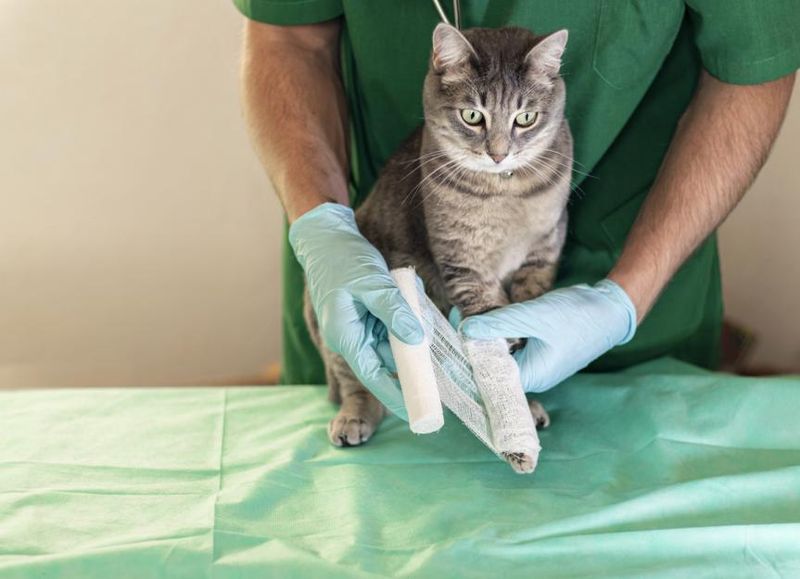
Human activities can inadvertently pose dangers to cats. Construction sites, traffic, or even careless behavior can lead to injuries. Cats may venture into unsafe areas, unaware of the potential dangers.
The fear of a cat encountering harmful human actions is a significant concern. Loud noises, machinery, and debris can result in accidents or stress.
Owners may attempt to guide their cats away from such dangers, but the unpredictability of human environments keeps this worry at the forefront of their minds.
Loss of Identification
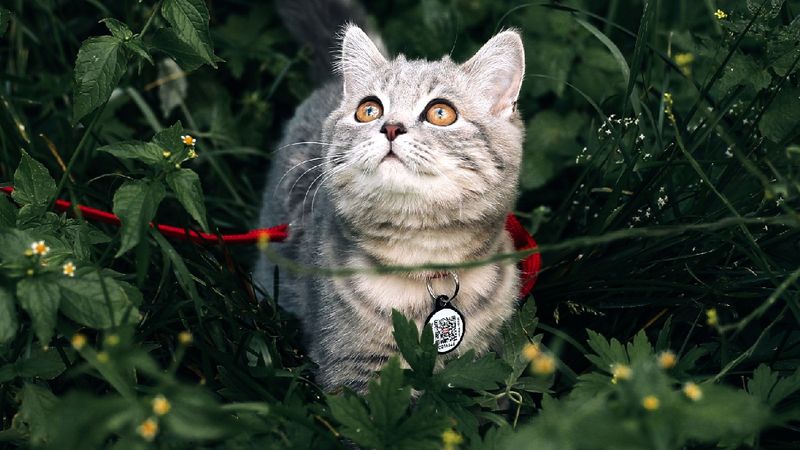
Identification is crucial for returning lost cats to their owners. The fear of a cat losing its collar or ID tags while exploring outside is a real concern. Without identification, reuniting with a lost pet becomes challenging.
Forested areas and dense vegetation can snag collars, leaving cats without a means of identification. This potential loss adds to the anxiety of outdoor exploration.
While microchipping offers a more permanent solution, the fear of an unidentifiable cat roaming the wild remains a constant worry for owners.
Being Trapped or Stuck

Curiosity might lead cats into precarious situations. The possibility of them getting trapped or stuck in tight spaces is a genuine concern. Whether it’s between fences, in sheds, or under decks, these situations can be stressful for both the cat and its owner.
Cats are known for their agility, but sometimes they misjudge spaces, leading to distressing scenarios. Owners often worry about their pets’ ability to extricate themselves from such situations.
Monitoring outdoor activities can help, but the fear of entrapment is always at the back of an owner’s mind.
Aggression from People
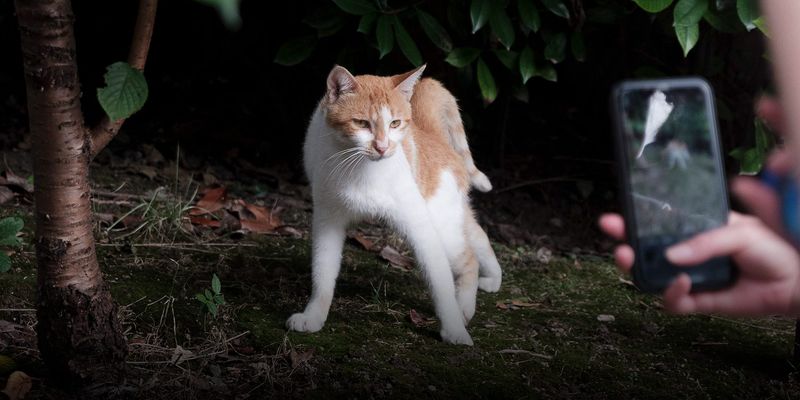
Not everyone appreciates feline visitors. The fear of aggression or harm from people is a concern for cat owners. Some individuals may react negatively towards outdoor cats, leading to potential harm.
Urban areas pose a higher risk where encounters with strangers are frequent. The thought of a beloved pet being mistreated by humans is distressing.
Educating communities about animal welfare can help reduce this concern, but the unpredictability of human behavior keeps the worry palpable for cat owners.
Fear of Poisoning
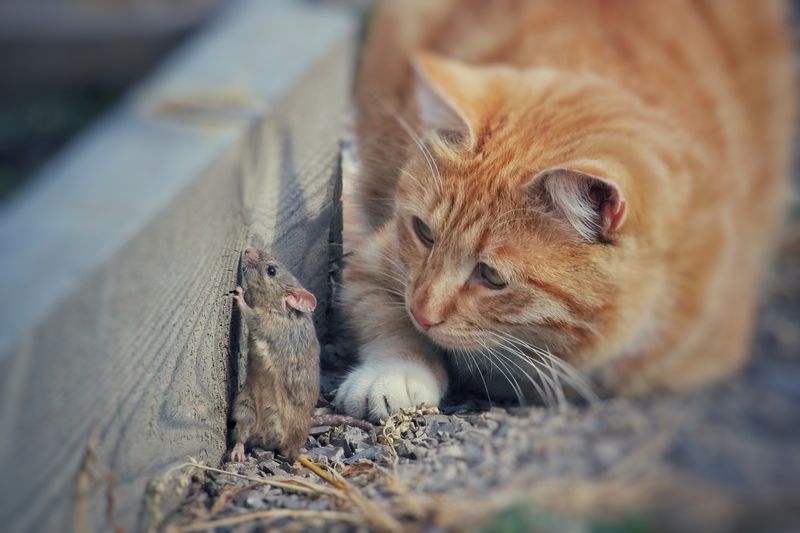
Poisoning is a silent threat that many cat owners fear. Outdoor environments may contain harmful substances, such as rat poison or antifreeze, posing a grave risk to curious cats.
These substances, often left out in open spaces, can attract cats due to their scent. The consequences of ingestion can be fatal, making this a paramount concern.
While vigilance and awareness help mitigate this risk, the fear of accidental poisoning remains a constant worry for those who let their cats roam freely outdoors.
Garden Mischief
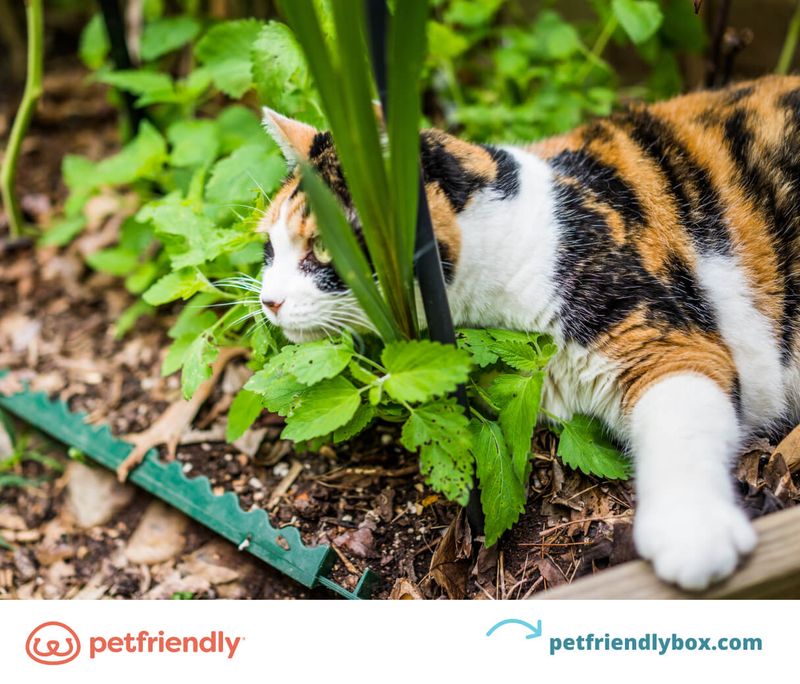
With a penchant for curiosity, cats often find gardens irresistible. Their agile paws can easily disrupt flowerbeds, causing unintended chaos. Garden enthusiasts may find their prized blooms trampled or dug up by these playful explorers.
Such mischief can lead to tension with neighbors who value their gardens. The simple joy of a cat frolicking in colorful landscapes may come at the cost of strained relationships.
An often overlooked concern is the potential harm to the cat itself. Some plants can be toxic if ingested, posing health risks. Thus, understanding garden dynamics becomes crucial for responsible pet ownership.

